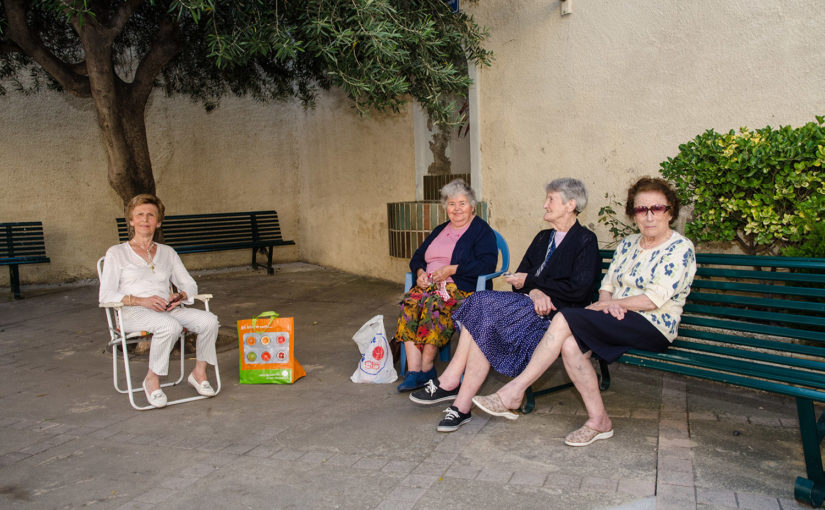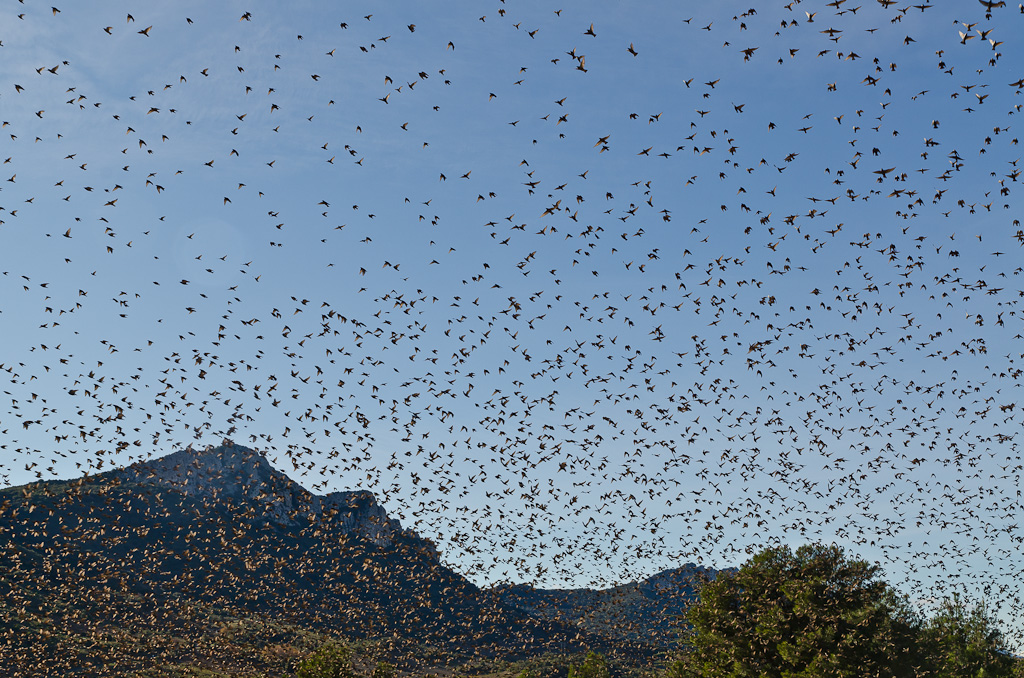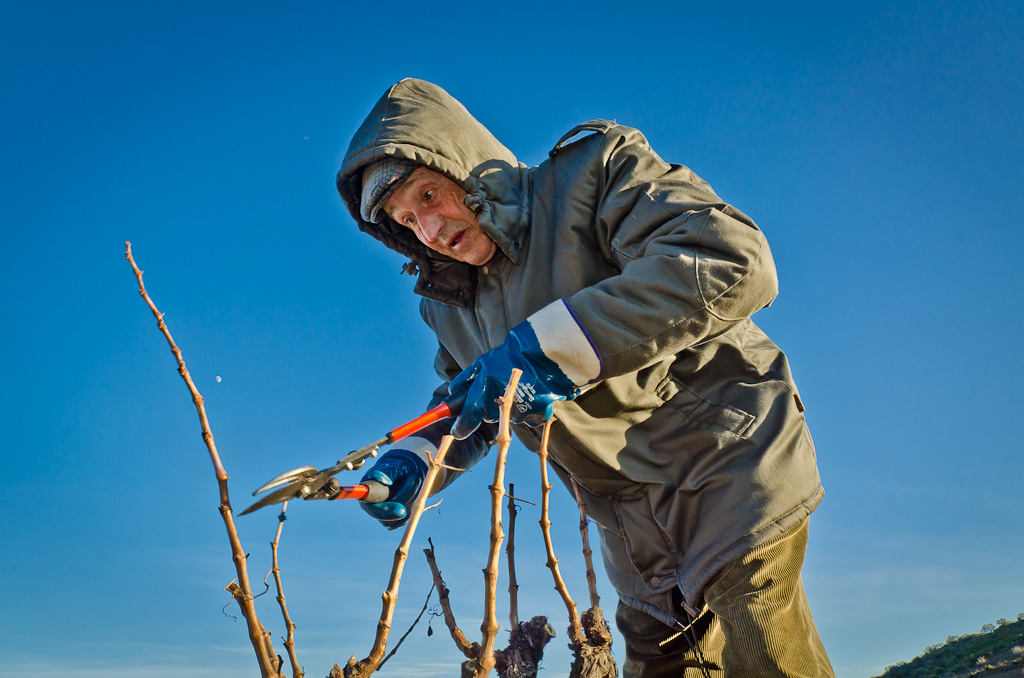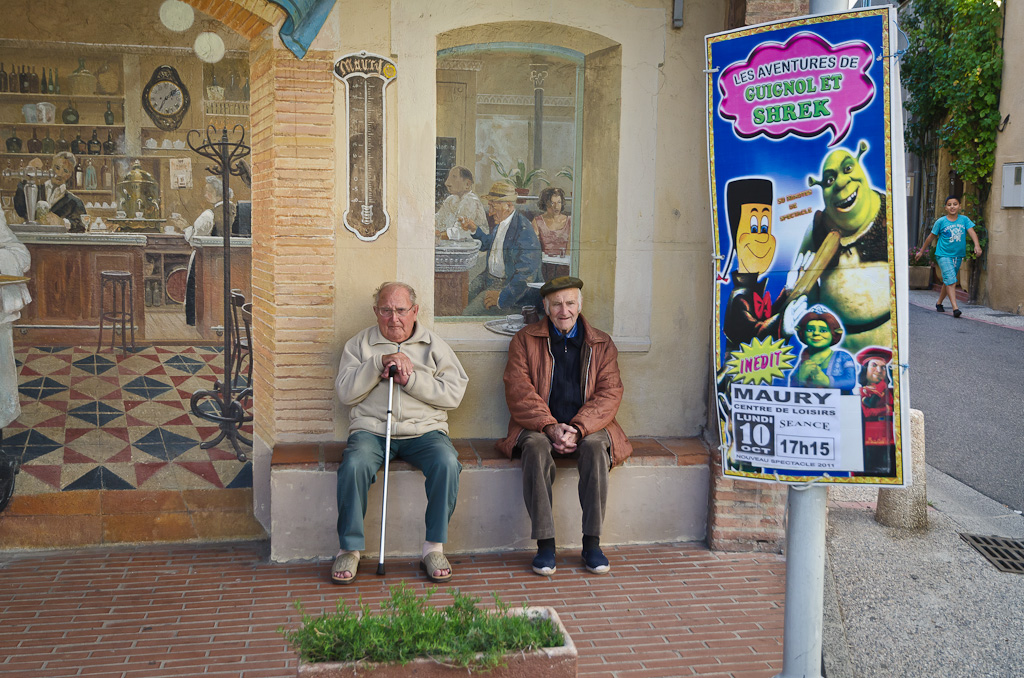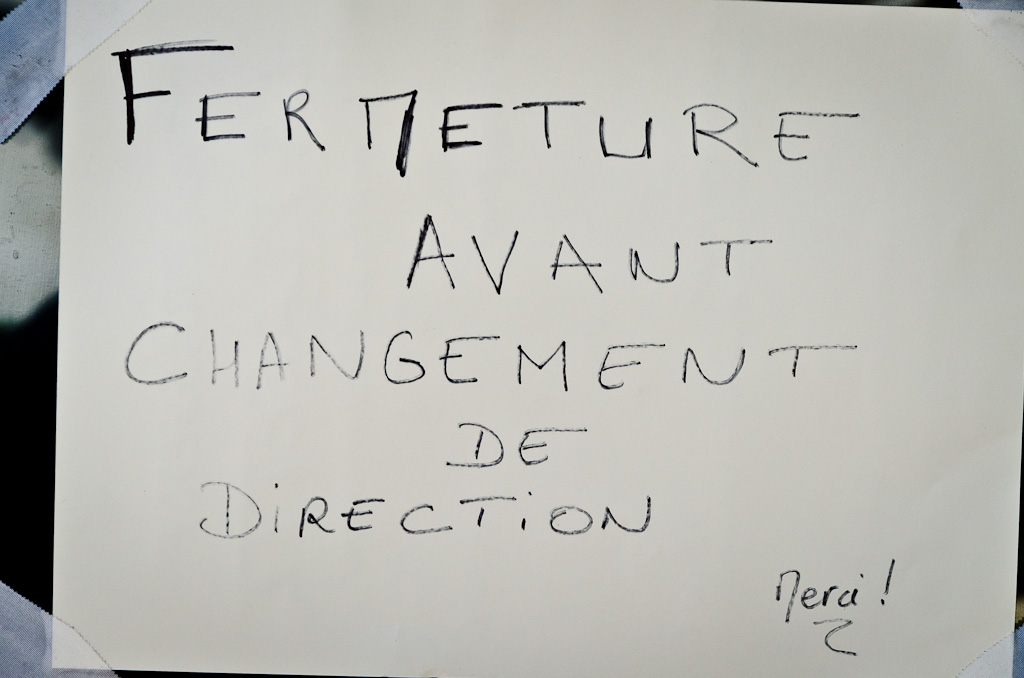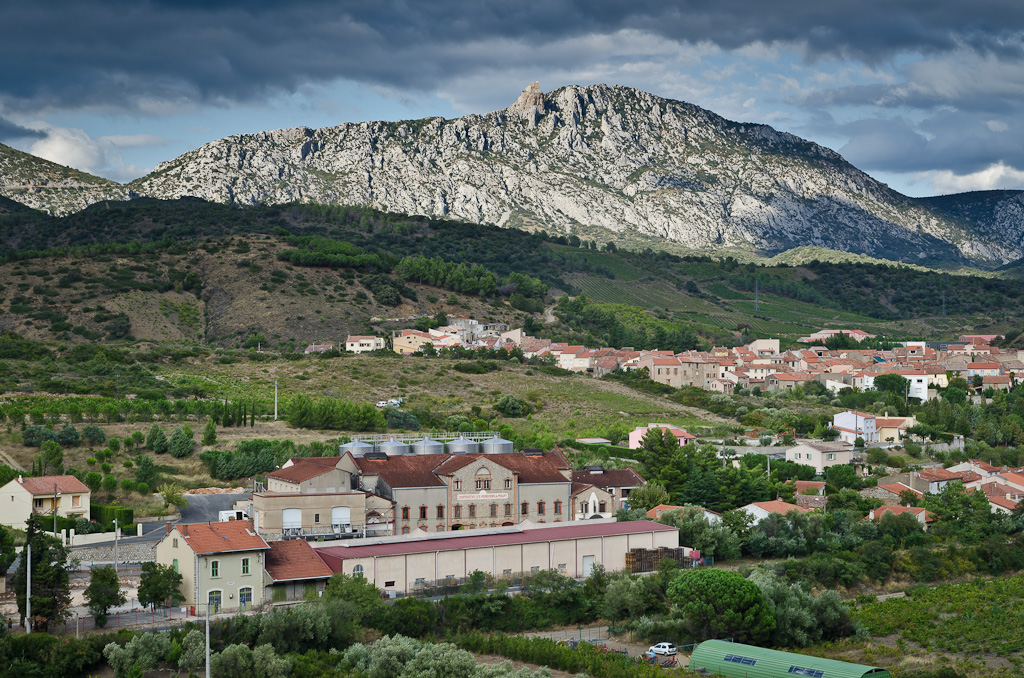The photo above was made on September 30, 2011 and christened The Olive Tree Salon. The small park is actually the Place du Bicentenaire (1789-1989), but to me it will always be the set for the Olive Tree Salon. The women gathered on warm summer evenings with their knitting, or not, and spent an hour or two talking over their day, exchanging gossip and recipes, and, no doubt, complaining about the ailments of age. Groups of two or three men sat at the trompe l’oeil café or down by the bus stop and I expect their conversations were not very different. Geneviève (left) was the natural leader, as she was throughout town. Formerly the secretary at the Mairie and, as such, a reliable source of information about everything in the village, she is now the head of the Club des Ainés, organizing activities and support for the village’s growing population of senior citizens. But seniors’ groups have built-in population controls and at least two of the members of the Olive Tree Salon have died: Pierette on the right and Lucienne, seated next to her. I’m not sure about Colette but I haven’t seen her since I’ve returned and it’s a small town.
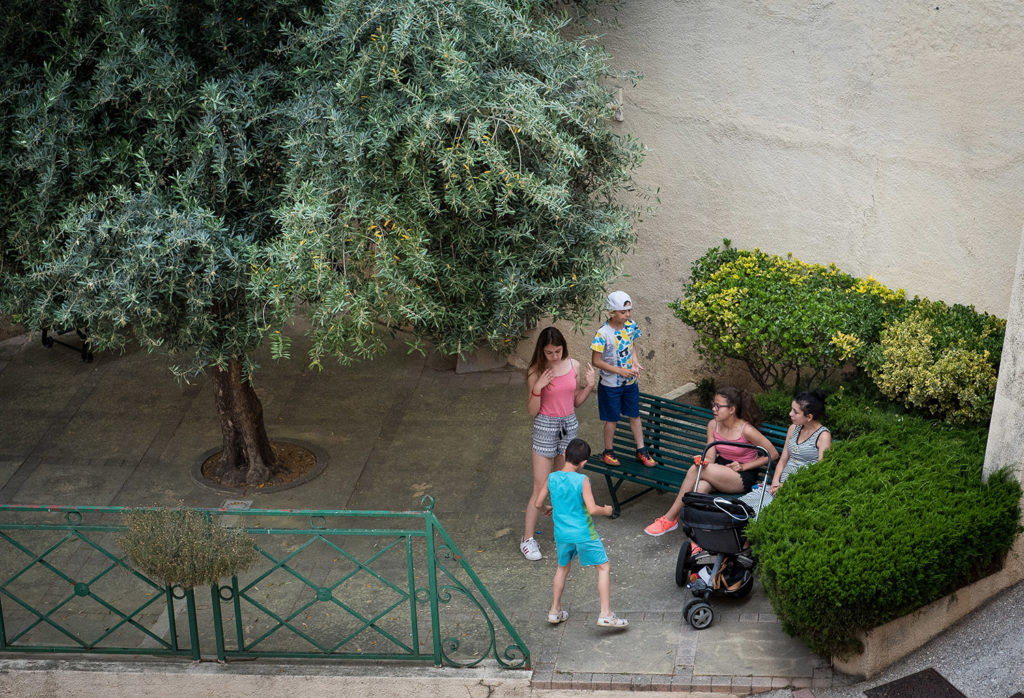
So the Olive Tree Salon is no more but the park is still a gathering place. Houses heat up in the late afternoons and the cool shade of the olive tree welcomes a new generation. The kids are young and energetic—a girl teaches her younger brother some dance moves—the clicking of knitting needles has been replaced by music struggling to be heard from smartphone speakers. Not my music, but a welcome addition to my soundtrack. Like many rural villages, the population of Maury is aging because a lack of local employment opportunities forces young people with ambition to look elsewhere. But there are still kids here. Their lively chatter and hip-hop music adds to my day, brings a smile to my face and a bit of comfort to my night.
©2017 Ron Scherl

